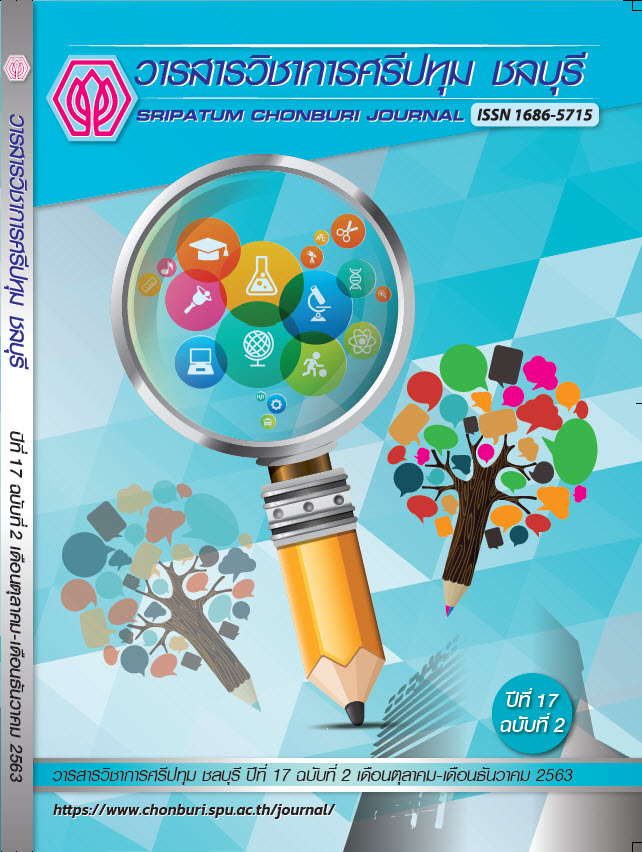LEGAL PROBLEMS IN CRIMINAL LIABILITY FOR NARCOTIC DRUG DELIVERY
Keywords:
criminal liability, accepting delivering of narcotic drug.Abstract
When considering the Narcotic Drug Act B.E. 2522 (1979), it was found that there was definition of drug production, distribution, importing, exporting and punishment provisions in chapter 12 stipulates the prohibitions and defining the punishment for production, importing, exporting, production or importing or exporting for trade, including dividing and packing, collecting and packing, dividing and packing, collecting and packing for trade, or distribution, possessing for sales, possessing of narcotic drug without permission, but there is no appearance of provisions regarding liability for punishment by transporting, handling narcotic drugs. In transporting, service of transporting or handling narcotic drug, the contractor will only consider the high cost of wages, but not considering danger of the product which is narcotic drug how the result will affect society. The government informs about charge to the contractor transporting narcotic drug that the person possesses narcotic drug, or having drug in possessing for sales only, the government does not mean the same as offence that the person has done. Therefore, the Narcotic Drug Act B.E. 2522 (1979) does not prescribe definitions and punishment regarding offence as a drug transporter. This is not correct in accordance with the intent of the Law on Narcotic Drug and the United Nations Convention on the Prevention of Trading of Narcotic Drug and Psychotropic Substances that Thailand is an associate state. In comparison to The Narcotic and Psychotropics Control Law of Japan in section 66-4, it is recommended that the law be amended in accordance with the actions and intent of the Drug Enforcement Act. By amending the definition of transport narcotics means conveying narcotics's preferred action to move from one place to another. The carrier knows that it is narcotics. Regardless of whether the transport is hired or not, and the carrier is paid. And increase the criminal liability under Section 88/1 that any person who is employed in the transportation narcotics or similar substance, no matter the amount, shall be imprisoned for life or death.
References
เจาะลึกระบบสุขภาพ. (2559). คาดปี 59 ผู้เสพยา 2.7 ล้านคน ยาบ้าเป็นหลัก เสพแบบ ค็อกเทล เพิ่ม 4 เท่า โปรโมชั่น 1 แถม 1 (ออนไลน์). เข้าถึงได้จาก: https://www.hfocus.org/content/2016/06/12337 [2561, 30 มกราคม].
ธานี วรภัทร์. (2554). วิกฤติราชทัณฑ์ วิกฤติกระบวนการยุติธรรมทางอาญา. กรุงเทพฯ: วิญญูชน.
ปกรณ์ มณีปกรณ์. (2555). ทฤษฎีอาชญาวิทยา. กรุงเทพฯ: เวิลด์เทรดประเทศไทย.
ผู้จัดการออนไลน์. (2556). สถิติบำบัดยาเสพติดทั่วไทยเกิน 3 แสน 80% เป็นวัยรุ่น ติดยาบ้าเยอะสุด (ออนไลน์). เข้าถึงได้จาก: https://mgronline.com/qol/detail/9560000081090 [2561, 30 มกราคม].
เสริม ปุณณะหิตานนท์. (2558). การกระทำผิดในสังคม: สังคมวิทยา อาชญากรรม และพฤติกรรมเบี่ยงเบน. กรุงเทพฯ: สำนักพิมพ์แห่งจุฬาลงกรณ์มหาวิทยาลัย.
อภิรัตน์ เพ็ชรศิริ. (2548). ทฤษฎีอาญา. กรุงเทพฯ: วิญญูชน.
Narcotics and Psychotropics Control Act (Online). (n.d.). Available: http://www.japaneselawtranslation.go.jp/law/detail_main?re=&vm=2&id=2849 [2018, January 30].
Downloads
Published
Issue
Section
License
บทความทุกบทความเป็นลิขสิทธิ์ของวารสารวิชาการศรีปทุม ชลบุรี



